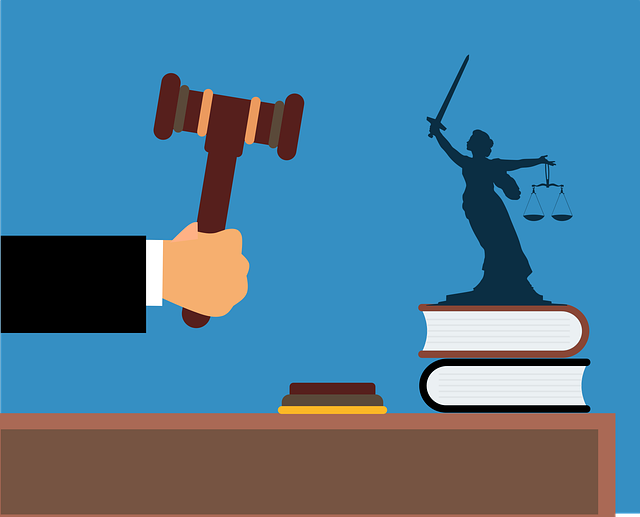Regulatory Fraud Laws protect consumers and promote ethical business by preventing deceptive or corrupt conduct, especially in examples of workplace rights violations like wage fraud, tax misclassification, and safety standard breaches. These violations not only deprive employees of their entitlements but also pose health risks and erode business integrity. Enforcement agencies investigate and enforce these laws through jury trials, holding accountable those who engage in fraudulent activities. Notable cases like Enron's accounting scandal and Volkswagen's emissions manipulation have underscored the critical role of these laws in safeguarding workplace rights and driving legislative changes for transparency and accountability.
Regulatory fraud laws play a pivotal role in upholding ethical standards within organizations, safeguarding employees’ rights, and ensuring fair business practices. This article delves into the intricate world of these laws, offering a comprehensive overview. We explore common examples of workplace rights violations, from discrimination to falsifying records, which often lead to legal action. Key elements of fraud are dissected, highlighting the crucial role of enforcement agencies in investigating and prosecuting such cases. Through case studies, we uncover the far-reaching impacts of notable fraud incidents on shaping modern workplace regulations.
- Understanding Regulatory Fraud Laws: Definition and Scope
- Common Examples of Workplace Rights Violations Leading to Legal Action
- Key Elements that Constitute Fraud in a Work Setting
- Enforcement Agencies and Their Role in Investigating Fraud
- Case Studies: Notable Fraud Cases and Their Impact on Workplace Regulations
Understanding Regulatory Fraud Laws: Definition and Scope

Regulatory Fraud Laws are designed to protect both consumers and businesses by ensuring fair practices in various sectors. These laws encompass a wide range of activities, from financial misdeeds to health and safety violations. At their core, they aim to prevent individuals or entities from engaging in deceptive or corrupt conduct that undermines public trust and impairs the functioning of markets. By holding wrongdoers accountable, these regulations not only safeguard consumers but also promote ethical business practices.
One way to grasp the scope of Regulatory Fraud Laws is through examining examples of workplace rights violations. These can include instances where employers defraud employees of wages, misclassify workers for tax purposes, or violate safety standards leading to harm. Such violations not only deprive employees of their rightful entitlements but also pose significant risks to public health and safety. Moreover, they erode the integrity of the business environment, making it crucial for regulatory bodies to intervene and achieve extraordinary results in holding accountable those who break these laws. This process often involves jury trials, where evidence is presented and decisions are made based on facts and legal principles, ultimately ensuring fairness and accountability within the legal framework.
Common Examples of Workplace Rights Violations Leading to Legal Action

In many cases, violations of workplace rights lead to legal action when employees are subjected to unfair treatment or discrimination. Examples of such violations include pay disparities based on gender, race, or age, where corporate and individual clients may face lawsuits for failing to provide equal compensation for equal work. Another common issue is harassment, whether it be sexual, racial, or based on disability, which can lead to severe legal consequences for employers.
Additionally, failure to comply with labor laws regarding working hours, breaks, and safety standards often results in legal action. Employers who do not respect these rights risk achieving extraordinary results through the wrong means, including avoiding indictment by addressing these issues proactively. Ensuring fair treatment of employees is not just a moral obligation but also a strategic move to avoid future legal complications.
Key Elements that Constitute Fraud in a Work Setting

In the context of regulatory fraud laws, understanding key elements that constitute fraud in a work setting is paramount. Fraud can manifest in various forms, but it generally involves deception aimed at gaining an unfair advantage or causing financial harm. Examples of workplace rights violations that fall under this category include misrepresenting facts to secure employment, engaging in embezzlement, and falsifying records related to financial transactions or performance metrics. These actions not only breach ethical standards but also violate specific laws designed to protect both employees and organizations from such malfeasance.
When discussing white collar and economic crimes, it’s crucial to recognize that these are often complex cases involving sophisticated schemes and intricate financial structures. A key aspect of addressing such issues is distinguishing between legitimate business practices and fraudulent activities. While white-collar defense strategies may vary widely depending on the specific charges and circumstances, a common goal is to achieve a complete dismissal of all charges. This involves meticulous investigation, robust legal argumentation, and a thorough examination of the facts to ensure that any alleged violations are properly contextualized and upheld against legal scrutiny.
Enforcement Agencies and Their Role in Investigating Fraud

Enforcement agencies play a pivotal role in investigating regulatory fraud, acting as guardians of ethical business practices. These agencies possess the authority and expertise to delve into complex cases, ensuring compliance with laws and regulations. They employ a multi-faceted approach, utilizing investigative techniques to uncover violations, which can include various examples of workplace rights violations such as wage theft, discrimination, or health and safety hazards.
Through meticulous scrutiny of documents, interviews, and evidence collection, they navigate all stages of the investigative and enforcement process. Their goal is to hold accountable those who engage in fraudulent activities, thereby fostering a culture of integrity within organizations. By winning challenging defense verdicts for their clients, these agencies demonstrate their commitment to justice and fair play, ensuring that businesses operate within ethical boundaries.
Case Studies: Notable Fraud Cases and Their Impact on Workplace Regulations

In recent years, several notable fraud cases have shed light on the significance of regulatory fraud laws and their impact on workplace rights. These high-stakes cases, involving white-collar and economic crimes, have left an unprecedented track record, urging businesses to reevaluate their internal controls and compliance strategies. For instance, the Enron scandal in the early 2000s exposed accounting fraud on a massive scale, leading to stricter regulations for financial reporting and corporate governance. This event not only resulted in significant legal repercussions for the company’s executives but also prompted the development of enhanced oversight mechanisms.
Similarly, the Volkswagen emissions scandal highlighted the consequences of misleading consumers and regulatory bodies regarding product safety. The company’s manipulation of emissions tests led to a global backlash, hefty fines, and a severe reputational hit. This case study emphasized the need for transparency and accurate reporting, prompting regulators to implement stricter standards and penalties for similar violations. Examples of workplace rights violations, such as these, have driven significant changes in legislation, ensuring that businesses prioritize ethical practices and uphold the rights of their employees and customers alike.
Regulatory fraud laws are essential tools for upholding ethical standards in the workplace, ensuring that businesses adhere to vital regulations. By understanding these laws and being aware of common violations like discrimination, harassment, or financial misdeeds, organizations can prevent legal action. Key elements of fraud, when identified, prompt enforcement agencies to investigate and enforce compliance. Notable case studies highlight the significant impact of fraud, driving necessary changes in workplace regulations. Staying informed about both the law and its practical applications is crucial for fostering a transparent and fair work environment.






